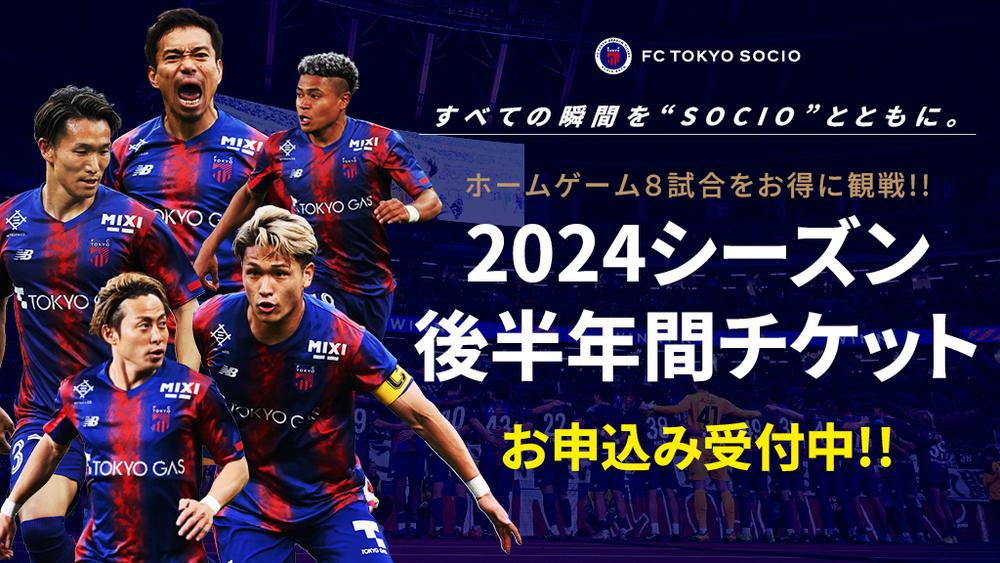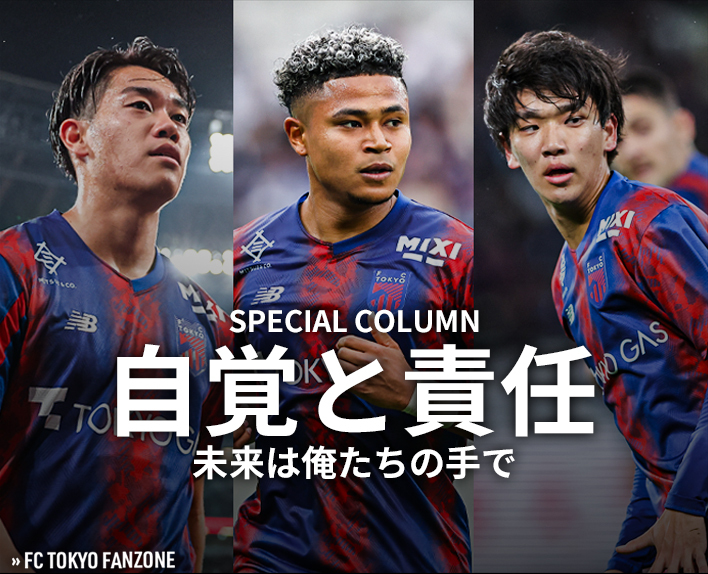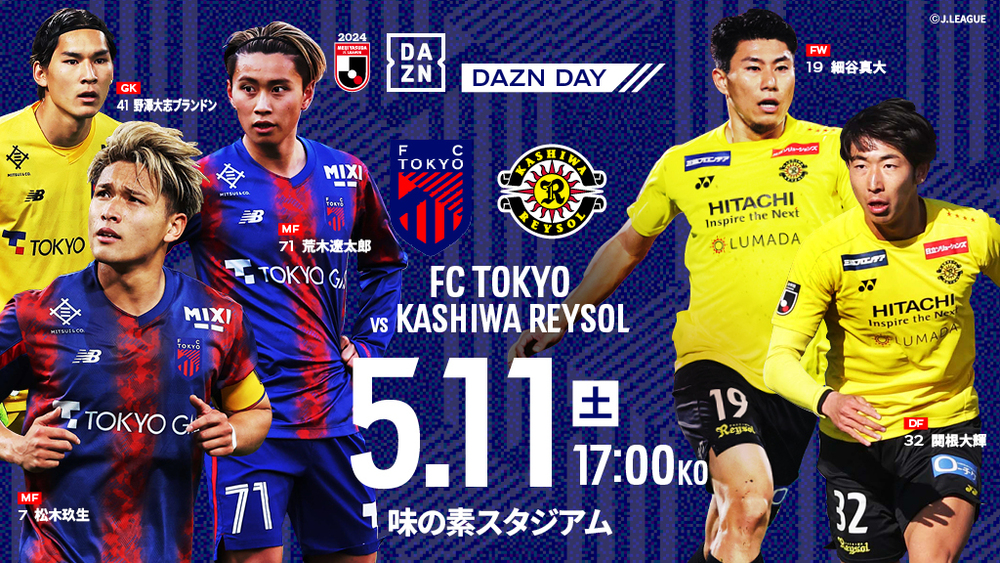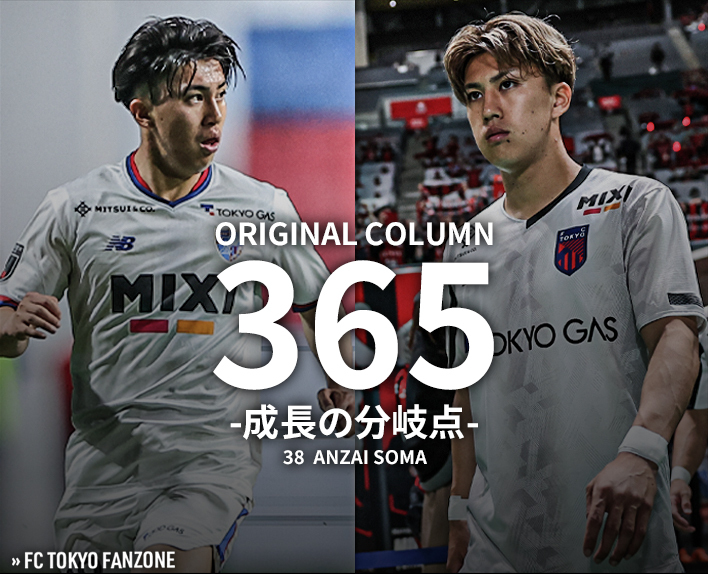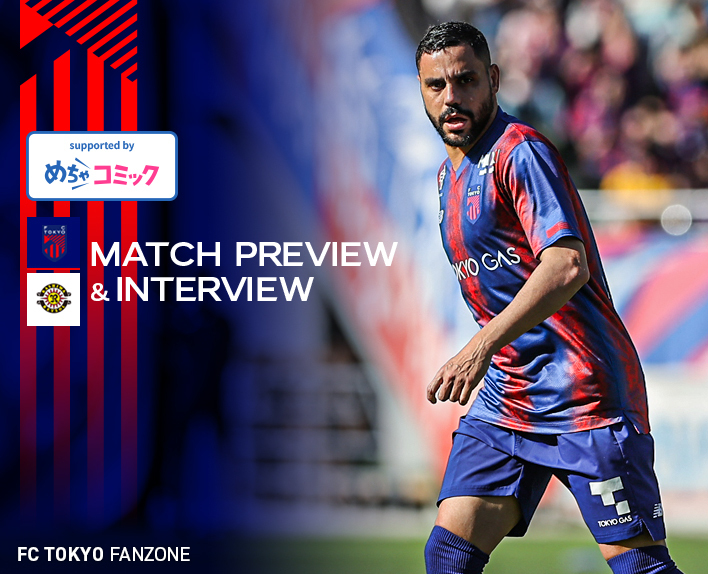During the period when the U-23 Japan national team was continuing to struggle in Asia, the team achieved victories with performances and results that made their absence feel minimal, rising to a position where they are eyeing advancement to the top ranks.
Among many players shining on the pitch, the impressive performances were showcased by Kota TAWARATSUMIDA, Kanta DOI, and Kashif BANGNAGANDE, three players who have been promoted from the academy. What are these elite players, who have grown into the core of the team, thinking now, and with what mindset are they playing? We followed their current status as they carry the future of the team.
Three players who conquered Asia with the U-23 Japan national team and secured their tickets to the Paris Olympics have returned to Tokyo. The experience of overcoming the immense pressure of 'losing means it's over' is invaluable. They have grown stronger than ever and are sure to bring something significant back to Tokyo from here.
During their absence, the team has achieved solid results, including three consecutive league wins for the first time in about two seasons. The players utilized have been dynamic in their respective positions, allowing for a style of football where anyone can bring out each other's strengths. Notably, Kashif BANGNAGANDE, Kota TAWARATSUMIDA, and Kanta DOI, who were promoted from the blue-red academy and belong to the same 'Paris Olympic generation,' are leading the team. Their presence in the starting lineup during the opening match against Cerezo Osaka and their growing influence as key players can be considered an epoch-making event that symbolizes this season so far.
Kota TAWARATSUMIDA
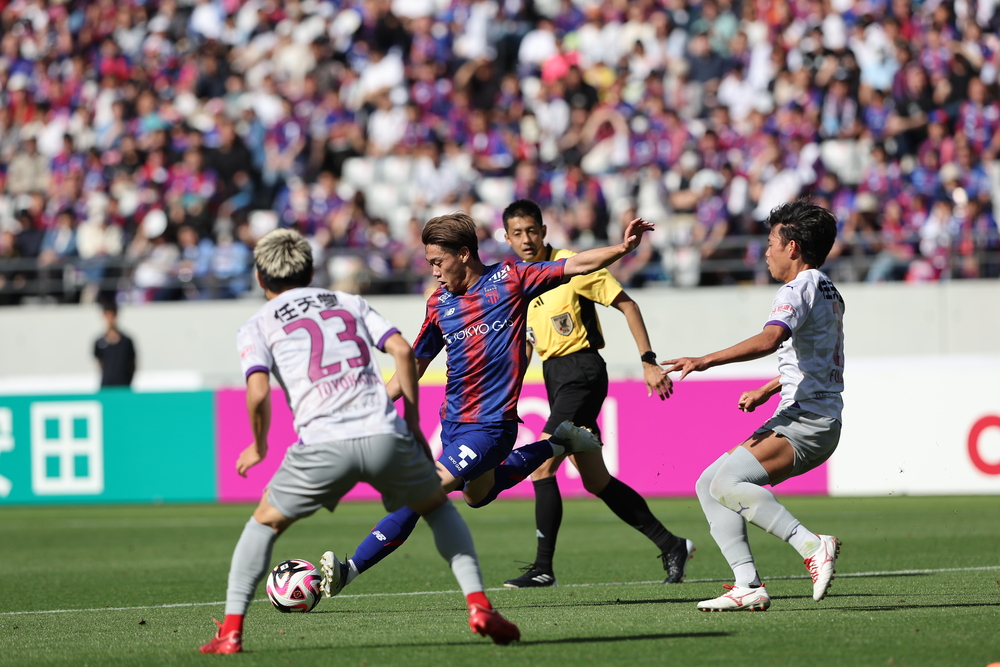
From the left wing position, Takaaki Tawaramoto's bold plays are truly the pride of Tokyo's left side "wing." His dribbling, which slices through the opponent's defense with ease, has now become a significant weapon for the team.
As he showcases the ball in a high position on the left side while maintaining a subtle rhythm, the gaze of the crowd gathers around him. What will he do? What kind of scene will unfold? The stadium becomes enveloped in tension and excitement.
Number 33 gives the impression of entering a dominant mode with each match. As he himself says, "If you're scared, you can't do anything," his fearless breakthroughs are an overwhelming threat to the opposing team. Recently, it seems he is making play choices with the premise of dribbling through even in situations of numerical disadvantage.
"I am confident in winning one-on-one situations. Taking on a defender is a play I excel at, so I want to keep doing it more and more."
Of course, there are shots from cut-ins, as well as backward passes after penetrating deep into the opponent's territory, and right-footed crosses from cutbacks like the one that assisted Diego OLIVEIRA's goal in the Meiji Yasuda J1 League Sec. 11 match against Kyoto SANGA F.C. The range of play options has expanded. This evolution is due to being aware of the "next" after initiating a dribble.
"Ultimately, I want to join the Japan national team, which I have aimed for since I was a child. I feel that I have grown more than before, so I want to play in Tokyo in a way that directly leads to scoring to reach that goal."
The rapidly growing number 33. His ever-increasing sharpness in that "moment" is a must-see.
Kanta DOI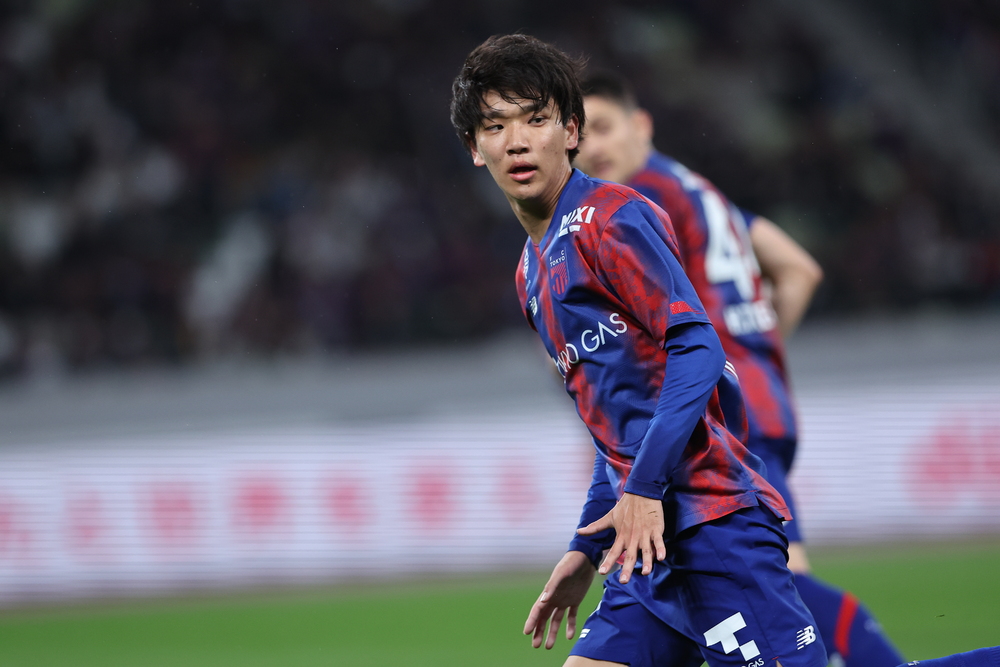
The presence of player Doi, who leads the final line, has become a symbol of Peter Tokyo this season. Despite being in the second season after promotion to the top league, he has had many opportunities to play since the opening match, effectively coordinating the defense with precise communication. He controls the height of the defense line and the direction of the build-up with a loud voice that resonates throughout the stadium, continuing to perform detailed tasks according to the flow of the game. He is truly the young commander of the final line.
"What I value is the communication aspect. I assess whether to connect the ball based on the flow of the game and the time, how to defend, and whether the team's atmosphere is becoming negative. When mistakes pile up, there are times when I don't want to receive the ball during the buildup, so in those moments, I might switch it up with a long ball. I constantly discuss these things during the match with our midfielder, Takahiro KO."
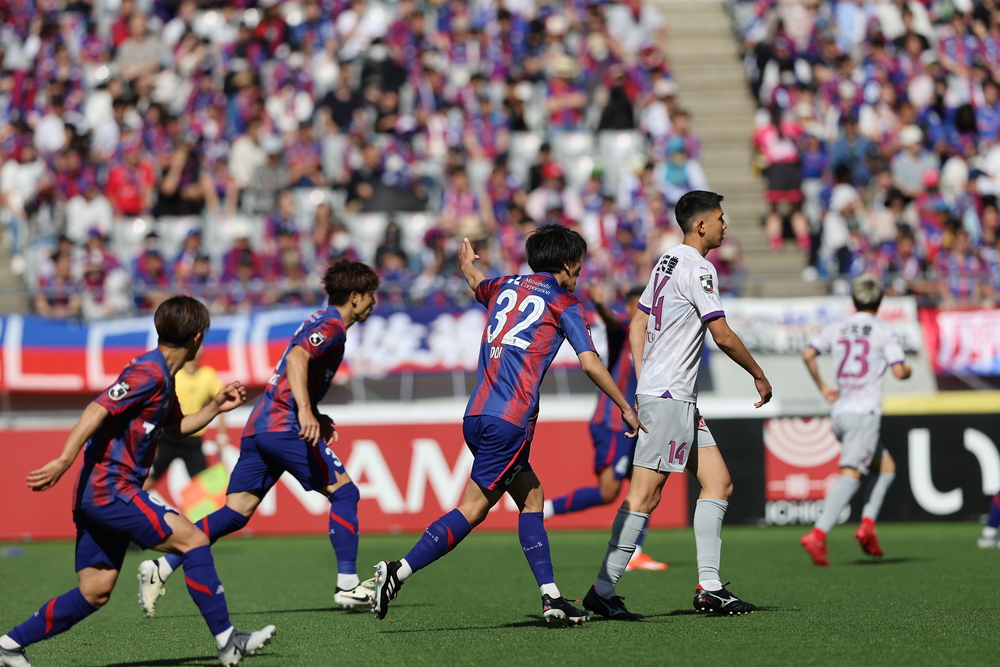
By gaining match experience, I have become accustomed to the speed of the J1 League. I am now able to play not only considering my own performance but also the overall situation of the team and the mentality of those around me.
"I feel a great sense of achievement, and I think I am gradually starting to show my strengths in build-up play."
A 19-year-old in only his second professional season. Considering his rapid growth so far, he shows even frightening potential. However, despite achieving results, he never appears to be overly excited. It's also positive that he can calmly analyze and articulate the movements of the entire team.
"Compared to the first match, I've become a bit more relaxed and my vision has broadened. I want to keep doing this without getting too comfortable, and I want to take my experiences and build on them. This season, Kuryu MATSUKI has become one of the captains, and there have been more opportunities for the younger players to assert themselves. The advice from the seniors is significant, and I believe it positively influences the atmosphere during practice."
A center-back who inherited the "blue and red blood" from his father, Yoichi, who served as a guardian in Tokyo for a long time. His ability to calmly analyze his strengths and current situation is also a strong point. When he regains his condition and gets back into the competition for a regular spot, the team will likely level up even further.
Kashif BANGNAGANDE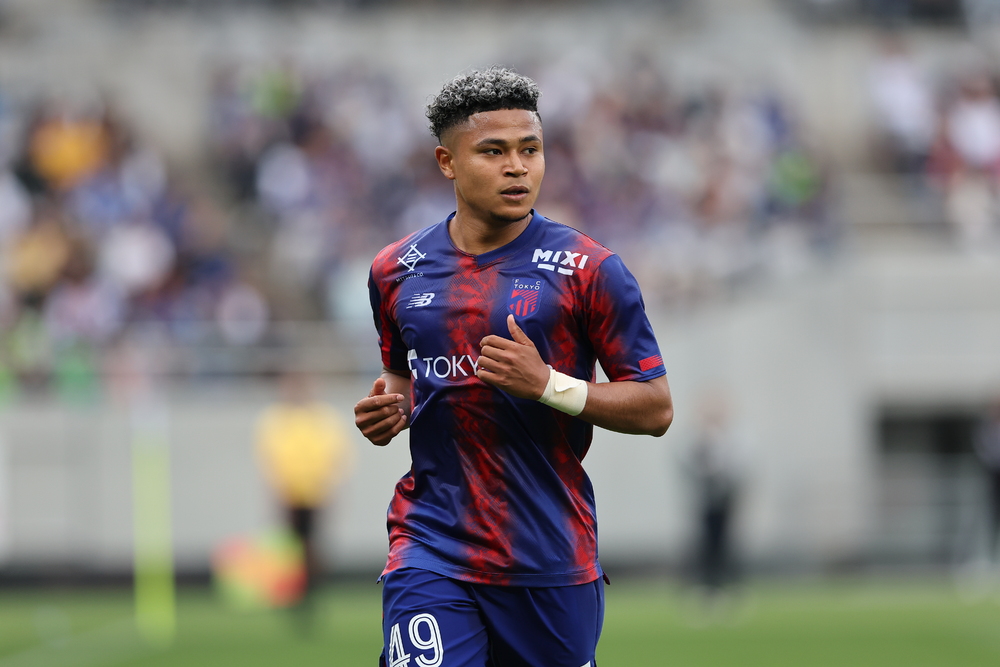
And Tokyo's pride on the left side, another weapon is player Yoshifumi, who has experience with the Japan national team.
He collaborates with players entering vertically on the left side, bringing a variety of attacking options to the team. His ability to make runs from wide areas and deliver cross balls is impressive, and he can both provide and receive through passes. His sharp movements into the penalty area for crosses from the opposite side are difficult to defend against, even if the opponents are aware of them. His movements must be a threat to the opposing team.
The previously problematic defense has shown resilience, and we are now seeing scenes where they can contain opponents even in situations of numerical disadvantage. This season, the significant improvement in play selection and quality on both offense and defense is undoubtedly due to the player's heightened awareness.
"In the future, I want to become a player who can excel on the world stage, so with that in mind, I want to be a versatile full-back who can do anything, including movements in the inner lap and plays where I receive the ball in pockets. I haven't fully grasped it yet, but I'm at the stage of analyzing my play with the coaching staff while playing matches and trying out various things."
I definitely want to participate in the Paris Olympics, which I have always aimed for. However, even after being excluded from the AFC U23 Asian Cup squad, and after my teammates returned having secured a spot in the main tournament, his stance remains unchanged. He continues to aim for greater heights with a calm and composed attitude.
"My mentality and feelings towards the matches have not changed at all before and after this AFC U23 Asian Cup. I feel like I've been able to play with the same mindset since the beginning of this season. I just focus on what is right in front of me. I believe that my performance in Tokyo will be evaluated, and that will show me what lies ahead. Whether I get selected will depend on my performance in Tokyo, so I will just concentrate on the upcoming matches and my immediate play."
His growth is not only in his play. His awareness of leading the team and sense of responsibility have greatly increased. The fact that he has started to inspire the team with a loud voice, which is hard to imagine from his gentle smile and voice during interviews, may also be a change that has occurred within him.
"I feel that the sense of responsibility to lead the team for our generation is increasing with each match, including myself. Before matches or when heading to practice, we discuss that 'we need to take the lead ourselves.' After all, truly strong teams have a strong sense of responsibility from each individual. I want to work towards becoming that kind of player."
The U-23 Japan national team has returned to the team, intensifying the competition for positions once again. The competition for starting positions, as well as for bench spots, is expected to become even more fierce. With support from mid-career and veteran players, how will the athletes shape their growth trajectory?
In any case, the mission is clear. By focusing on oneself and steadily building without getting too excited or too discouraged, it will lead to the future of both the individual and the team. I want to witness the evolution of the team and players that will unfold from here.
text by Tomo Aoyama
